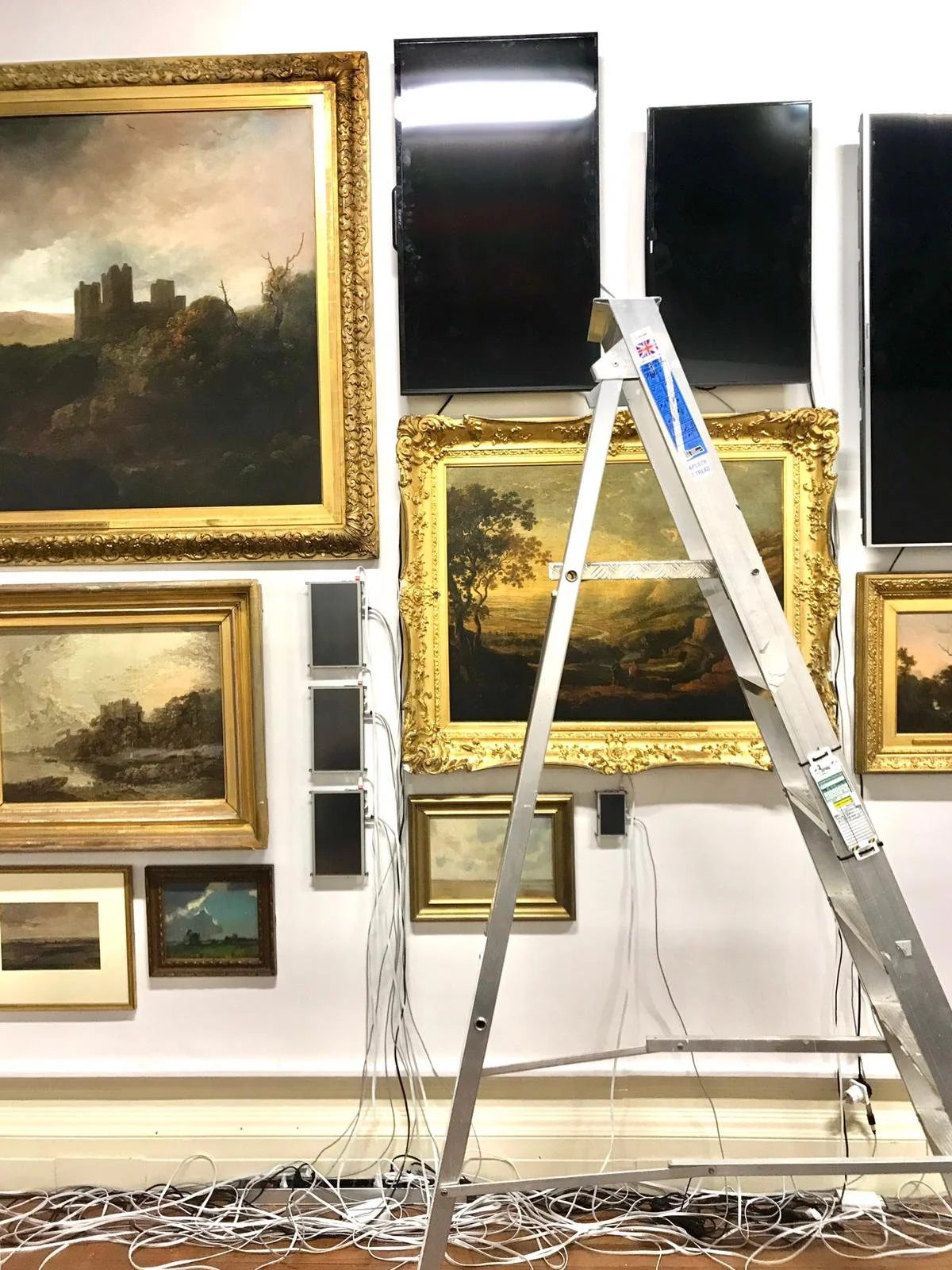interview with a project manager
I first met Michele Walther last year through a mutual friend Chris Sugrue who has taught at School of Machines, Making & Make-Believe for several years. Michele had just moved to Berlin with her family and got in touch with me at the encouragement of Chris who knew I was looking for help in running the school.
We hit it off immediately and have been working together ever since! Lucky me! Michele is a brilliant human and project manager and she'll be running a special one-day workshop next month aimed at helping artists, organisers, and the like up their game and learn to do all the tasks that we're not often trained in but regardless need to know.
Can you tell me a little about yourself? What’s your background?
Sure. I’m American and my background is as a corporate lawyer. About 10 years ago, I was working and living in Hong Kong with my husband, who’s an artist. He was becoming busier and busier, which often meant flying out of town once a month. Even though his work was taking off, I could see things on the non-art side weren’t running as efficiently as they could. So when my law firm asked me to come back to New York, I decided to quit and help him manage things. I’d always wanted to run a family business so this is in part how I looked at it. We moved to Paris in January 2010 and to Berlin in February 2018.
Tell me about your upcoming workshop! What is the motivation behind it?
Having worked with and alongside artists for so long, I'm completely sympathetic to their plight. Artists need to create work and at the same time manage a small business. Both of those things are hard to sustain, let alone at the same time.
This workshop is about teaching artists (and anyone else who would benefit) the basics of running the business side of things. I’ve broken down what I feel are the key principles into four categories: project management (including negotiating, which I think is extremely important), administrative tasks, strategic planning, and grant writing. It’s a lot to cover in under 5 hours, but I hope this workshop can give participants the confidence and skills to better manage this side of their practice so they have more time for creating.
Artists are their own best advocates. You can outsource some of these things, but no one’s interests will align perfectly with yours, so you need to keep control of your career. So this workshop is also about empowerment and giving people the confidence to understand the more daunting parts of the field.
How long have you been doing this kind of work? What has surprised you most?
I’ve been doing this kind of work for 10 years. The number one thing that has surprised me is how commonly artists are told “we don’t have the budget to pay artist fees.” If you don’t have the budget to pay artist fees, then you don’t have a budget to put on an exhibition. Paying artists a decent fee to show their work should be the cornerstone of any exhibition budget.
The second thing that has surprised me is all of the different stereotypes people who aren’t artists have about how they assume an artist should live and work. There is a lot of unsolicited advice and opinions out there. I think this just adds to the pressure of being an artist, which is already a struggle and filled with insecurities for most.
One recent example: A person in the arts (but not an artist) told me that artists should spend 5 weeks making work and nothing else, otherwise the work won’t be good. This person seems to have no idea what they’re talking about--who are they to say which one process results in good work, and, more importantly, how can someone in the field be so unaware of the weekly, if not daily, non-art work that is required to keep a career sustainable? And never mind the majority of artists who have family obligations or need to work another job to pay their rent.
Finally, I’m also surprised about the number of people who went to art school and none of these topics regarding a career as an artist were ever covered.
There’s this idea that there are limited resources in the world, that only some artists can be successful because there’s not a lot of opportunities and everyone’s fighting for the same few. Do you think there’s any truth to this? What’s perhaps a better way to look at it?
No, and I think this is a really dangerous take that, beyond fair pay, is completely antithetical to efforts to increase diversity in the art world.
I think a better way to look at it is “a rising tide lifts all boats.” If a museum is routinely receiving the message from artists that they need to give or increase their artist fees, then they will make a change in this direction. I think a similar thing happens to an artist who is the “first” to use a certain technology or technique. Although it is easy to feel threatened when other artists start using the same tool, it usually only helps bring attention and discourse to the field.
There are different ways to make money as an artist and understanding which of these ways would suit you is important (and something we’ll talk about in the workshop). Prioritizing how you ideally want to spend your time and earn money-- in essence, focusing on yourself and what you want to do--is, I think, a better approach to the problem of how to make a living as an artist.
And, on a related note, although I am conscientious of the many burdens already on an artist, I think hand-in-hand with asking for a sustainable fee, artists can ask about the diversity (or lack thereof) in a group show, and whether all the artists are receiving a similar artist fee. Some artists are in a better position to ask these questions than others, but these questions can benefit all artists. It’s not a confrontation but a conversation. In my experience, when a curator is asked about diversity in their exhibitions, they react positively and honestly.
What can people hope to get out of the workshop? What information are you most excited to share and why?
I hope people will leave the workshop feeling more empowered. Everyone could use help and encouragement on how to figure things out and you will get this help in this workshop. I'm really happy to share my experience and know-how.
Specifically, I'm excited to talk about career goals. I think not only can this help artists figure out whether to say ‘yes’ or ‘no’ to opportunities and focus their efforts, once you figure out what you want out of your career, it’s easier to be satisfied and content and not always looking over at other artists and feeling bad because they seem like they’ve got it made. Despite what’s on social media, most artists at all levels are struggling in some way.
I’m also excited to share what I know about negotiating and managing a project--everything from how to respond to an email about a so-so opportunity to how to get the most out of an exhibition and pitfalls to watch out for.
Time permitting, I would really love people to share their current predicaments and help guide them through the next steps.
Since I've been working with you, my own work with the school has improved greatly! It's why I think everyone should take this class. I know from personal experience how much I've gained from your knowledge and expertise--because it's personal to you so you really get all this on a deeper level. So would you say people running organisations like myself could also benefit from this workshop?
Thank you! That’s really nice to hear. Yes, I definitely think anyone running an organization like School of Machines would definitely benefit because you and artists are both running small businesses that take a lot of creative energy but also require you to be managers and administrators. I think anyone on their own in a creative field—musicians, actors, illustrators, writers—haven’t received but could use this training.
Professional Development for Artists takes place 9. November. For more information and to grab your ticket, click here.

